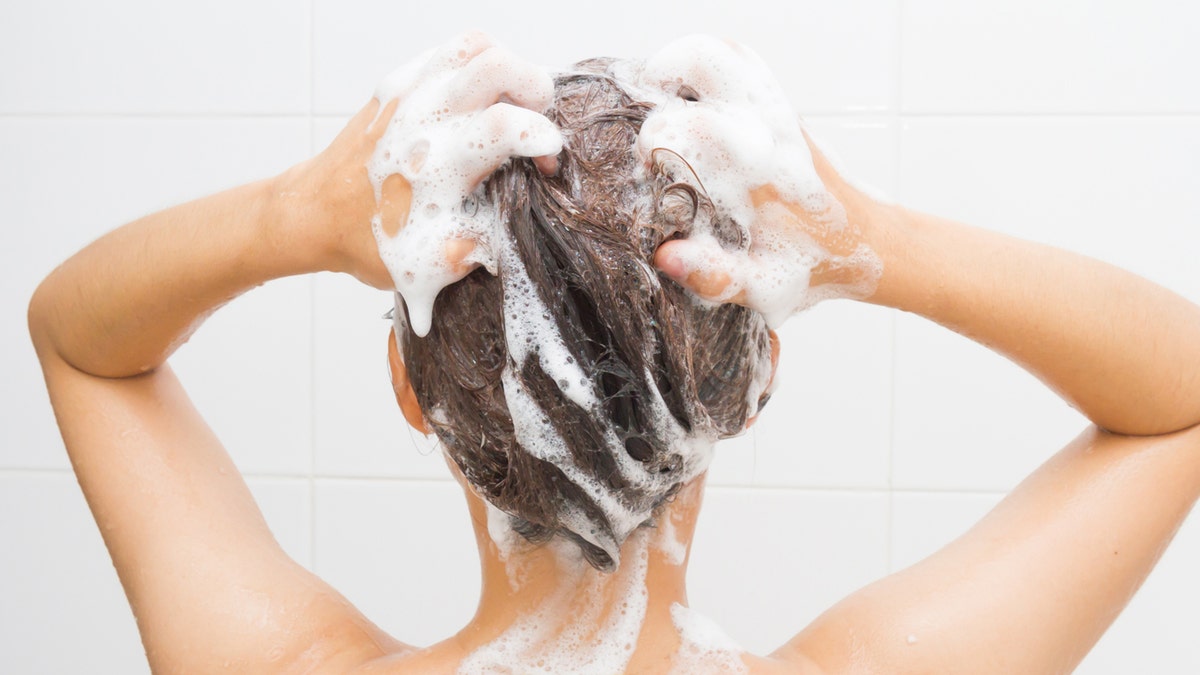
Woman washing her hair on white tiles background. (iStock)
Of all the things you have to worry about, you may not even think about the dangers lurking in your——shampoo? It may have many harmful ingredients that you need to avoid. In theory, you should have more concern over what you put in your body. Still, topical beauty products can prove unsafe, and an extensive report made public by the FDA proves the problem.
Reported Health Care Problems
Recently, the FDA released information on adverse reports related to food and beauty products. This data came from the Center for Food Safety and Applied Nutrition and is extensive since it goes back to 2004. It provides a good basis to further research on the health effects of beauty supplies.
FAMILY WARNS OF POWASSAN VIRUS MONTH AFTER NEW YORK MAN'S DEATH
According to Steve Xu, a physician in dermatology at McGaw Medical Center, hair and skincare products topped the list of adverse events in this report.
Unfortunately, products meant for babies and personal cleanliness had the most events of serious injury, including hospitalization and death. This finding shows that beauty products need guidelines to protect consumer safety.
At the same time, reports of adverse situations have actually doubled in the last year. This influx has largely resulted from hair loss and skin irritation complaints about WEN products. WEN manufacturers had been receiving thousands of complaints for their conditioners with only a mere 100 making their way to the FDA.
When the FDA called for WEN customers to file complaints directly to them, thousands came rolling in. According to the WEN products’ marketing agency, there is still no hard evidence that their conditioners cause hair loss.
IS ALCOHOL DEPRESSING YOUR SEX LIFE?
Few Restraints
While you might assume that the shampoo on store shelves have regulations, consider the facts. The beauty industry actually makes many of their own regulations. Without realizing it, you might just be dousing something medically harmful all over your body.
According to the FDA’s website: “Companies and individuals who manufacture or market cosmetics have a legal responsibility to ensure the safety of their products. Neither the law nor FDA regulations require specific tests to demonstrate the safety of individual products or ingredients.”
To calm your concerns a little, the FDA does restrain the cosmetic industry from using certain ingredients. In addition, the organization may step in if a product is clearly adulterated or misbranded and the company doesn’t issue a recall itself. However, you can see some problems with this self-regulated system.
HERBAL VIAGRA: JUST PLAIN DANGEROUS
What to Avoid
While the FDA and beauty companies figure out how to combat this problem, you should learn to recognize and avoid the worst ingredients in beauty products. Look at this list to get started and do your own background research on your favorite brands.
- SulfateThis ingredient is well-known as a skin, eye, mouth, and even lung irritant, making the product hard on people with sensitive skin. In addition, sodium laureth sulfate may contain a chemical known to cause cancer in laboratory mice. Researchers have not found a direct link to cancer in people.
- FormaldehydeBelieve it or not, many haircare and other household products use this preservative ingredient. Studies have shown an inconsistency with a link to cancer, although a more consistent link exists with topical applications on mice. According to the American Cancer Society, one study did find that workers exposed to the chemical had higher chromosomal changes. This finding supports the idea that formaldehyde may cause leukemia. Many reputable agencies consider it a carcinogen.
- ParabensBeauty companies often use parabens to protect against bacterial growth. However, the chemical mimics estrogen in the body and can cause cancer cells to grow more quickly. For now, the FDA has not found a strong enough link to ban the ingredient. In general, staying away from a chemical that may mess with hormones is a good idea, though.
While ingredients in food get at least some regulation, beauty products have much free reign. If an ingredient does not have a direct link to disease, beauty companies may just be using it. However, researchers have found harmful results in studies on chemicals commonly used in beauty products. To protect yourself, you should consider researching the chemicals used in your favorite beauty supplies, including your shampoo.
This article first appeared on AskDrManny.com.







































